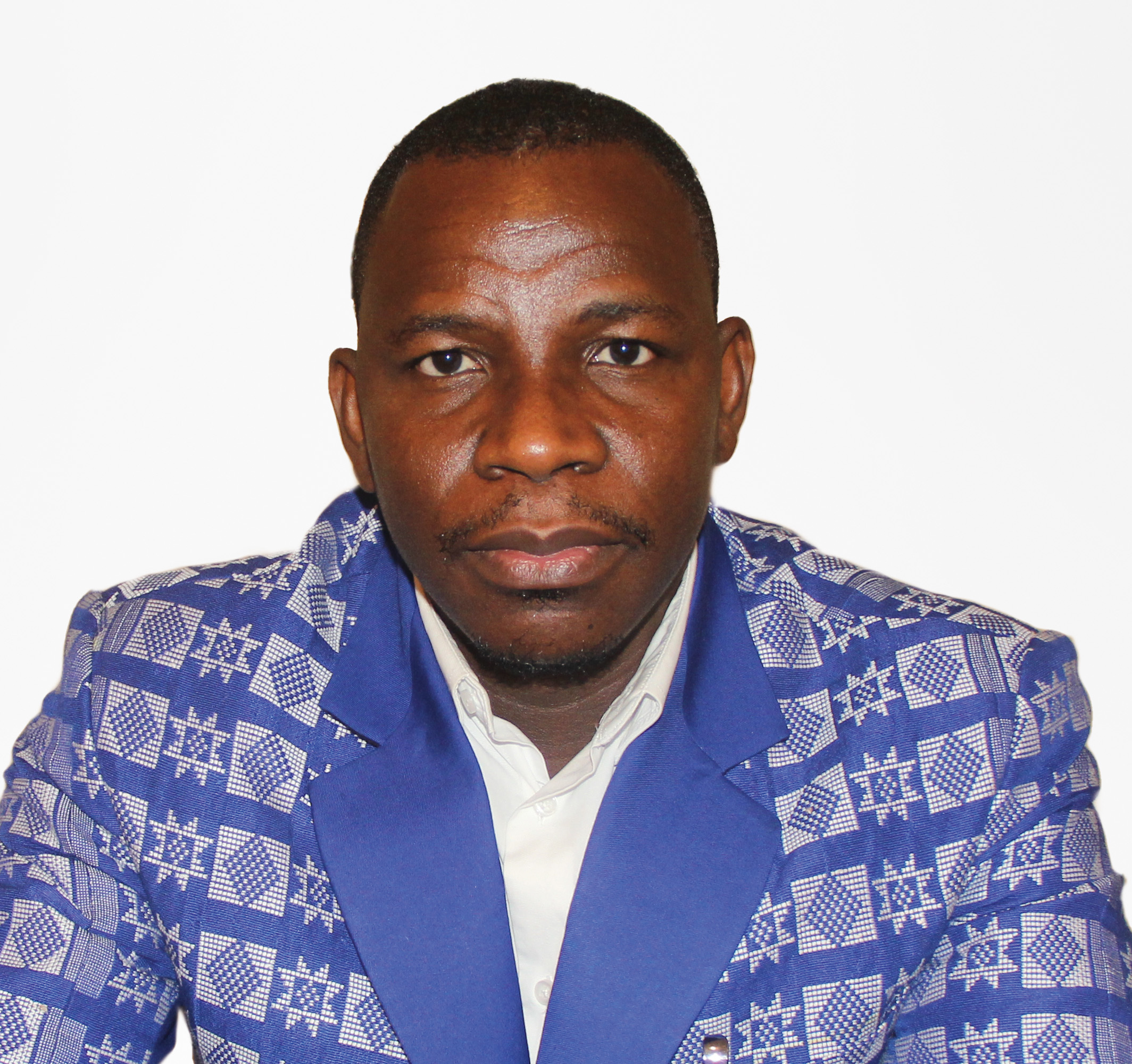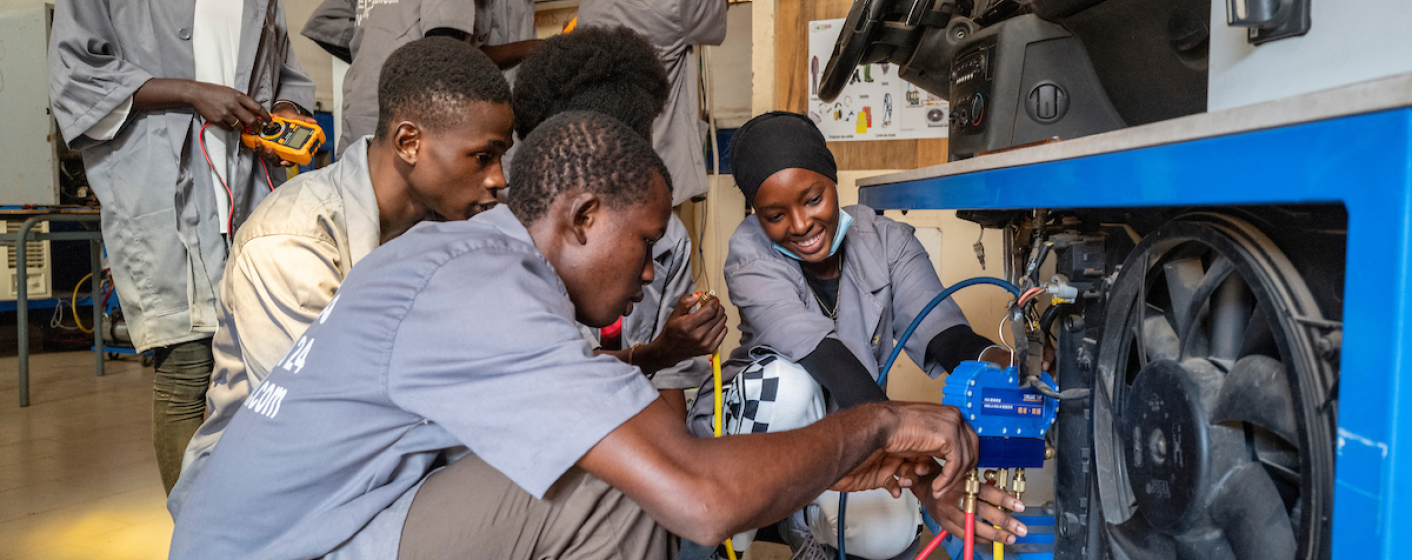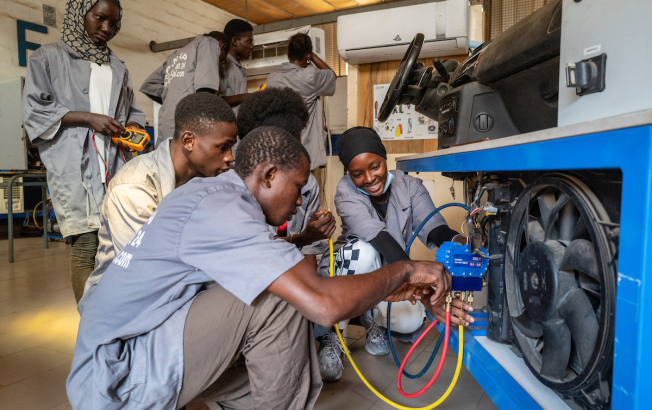Polemag #32 Interview: Amidou Bancé
In our latest edition of IIEP-UNESCO Dakar's news magazine, Polemag #32, which focuses on Developing skills, discover our Interview with Amidou Bancé, Permanent Secretary of the Framework for consultation of ministers in charge of employment and vocational training in the UEOMOA area (CCMEFP-UEMOA).
1) IIEP-UNESCO Dakar has been supporting the CCMEFP-UEMOA since 2017 for the development and facilitation of a platform for the pooling of vocational training tools and resources. What does this mean?
The platform for the pooling of vocational training tools in UEMOA countries and Chad arose from the following observation. Several TVET policy partners in Africa observed similar needs across the region’s countries for the development of training tools. Hence the idea for a structured and dynamic pooling of vocational training tools and resources across UEMOA countries as a fundamental strategic challenge to strengthen national training systems to better address the needs and economic priorities of member countries. From the start, IIEP has been a key partner in the funding and technical development of this mechanism.
The principle is simple. UEMOA countries and Chad have committed in the framework of a memorandum of understanding to share their vocational training tools and resources, particularly the documents enabling the development of a training course, such as an aluminium-carpenter job skills checklist or an agricultural farmer assessment guide.
In practice, it is up to each country to populate the platform with resources and to process the requests for resources. Those requesting resources may be ministries in charge of TVET, public or private training centres, NGOs, technical and vocational training projects and programmes.
The pooling platform’s digital portal is managed by an administration unit falling under the permanent secretariat of the framework for consultation of ministers. The administration unit is responsible for the technical aspects of the digital portal including technological developments, system maintenance, putting online and updating data, and all other activities required for the proper functioning of the portal.
CCMEFP’s role is therefore to facilitate and ensure that resource requests are processed within the deadlines..
2) How would you assess the first five years of the platform?
The platform represents a true time and money saver for the countries. Four documents are usually needed to develop a new training course: a job skills checklist, a training reference framework, an assessment framework, and a material and pedagogic organizational guide. The average cost for developing these reference documents is around six million CFA francs. By adapting the resource from documents that already exist in other countries, the cost price is around two million CFA francs, i.e. divided by three. According to country estimations, this method also saves a considerable amount of time, reducing development time by around 60 per cent for a new training resource.
In 2017, 2,110 resources were listed in the eight UEMOA countries. To date, 545 resources have been shared on the platform, 259 resources requested,
and 112 resources transferred. As such, it can be said that there are genuine dynamics of sharing and platform ownership by the vocational training actors in the UEMOA area.

3) To what extent do you consider that regional pooling dynamics have an impact on national capacities to manage and develop vocational training resources?
The operation of the pooling platform relies on the one hand on a regional facilitation unit composed of CCMEFP-UEMOA, IIEP-UNESCO Dakar, and of resource persons, and on the other hand on national teams in the ministries in charge of vocational training in each country: national pooling entities (ENM).
With the platform, the ENMs have developed new skills. They draw up an inventory of the resources at national level, and then share them on the pooling platform. The ENMs also manage the requests for resources coming from the platform, accepting or refusing the sharing of a resource in accordance with the memorandum of understanding signed in 2017.
The regional pooling platform is only used for requests coming from another country. Each ENM is responsible for pooling in its own country. The skills developed thanks to the regional platform thus facilitate the connection between those submitting requests and different entities for a training resource at country level. As such, the regional pooling platform contributes to strengthening the national training system and to the diversification of training courses.
4) This year UEMOA launched, with the support of Swiss Development Cooperation, a vast regional vocational training programme (PROFOR) in West Africa and Chad. The CCMEFP is in charge of implementing part of the scheduled activities. What aspects does the CCMEFP plan to develop in this programme?
Pooling has given rise to the new regional vocational training programme, PROFOR. Observing the regional dynamics in sharing vocational training resources, Swiss Development Cooperation has decided to support the development of national pooling entities.
One of the challenges for PROFOR is to create national platforms to manage vocational training tools and resources in each country. These national systems will be attached to the regional pooling platform to reinforce the overall architecture. An institutional and operational diagnosis of the ENMs is scheduled with a view to establishing an action plan to strengthen the pooling system.
PROFOR is also to start working on a regional job certification framework. The plan is to identify 24 priority growth-oriented occupations and develop all the training tools for these occupations in UEMOA countries. In all, around 100 training documents will be made available and shared on the platform.
Other initiatives are scheduled in the framework of PROFOR, such as the adoption of a regional framework for acquired experience validation or the development of methodology for training trainers with RAFPRO.
IIEP will intervene on a technical level in all the activities of the initial focus of this regionally dimensioned programme for the strengthening of youth employability, the development of technical and vocational youth skills related to labour market needs and professional mobility in the UEMOA area.


